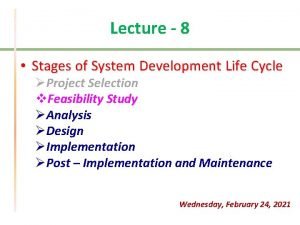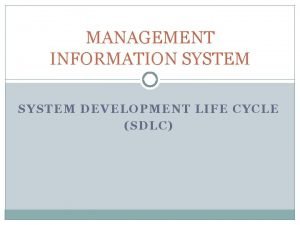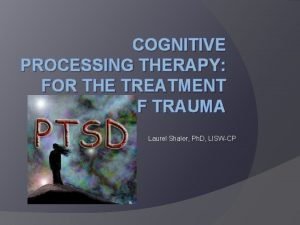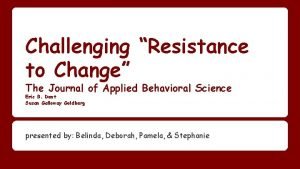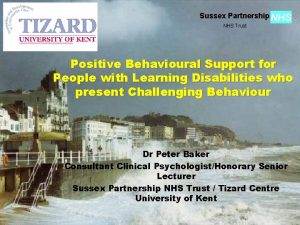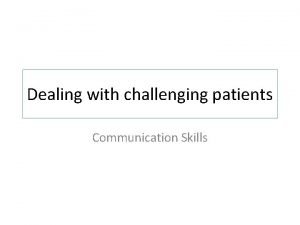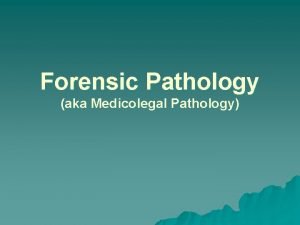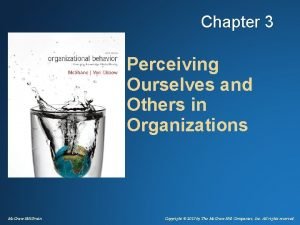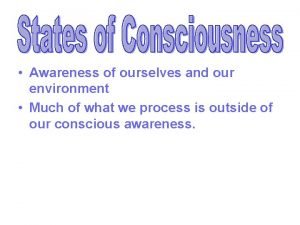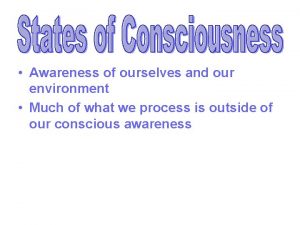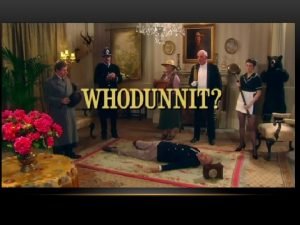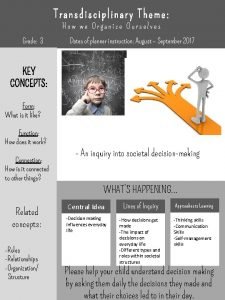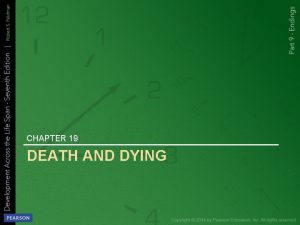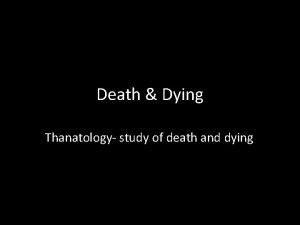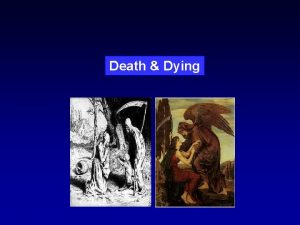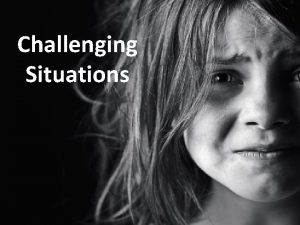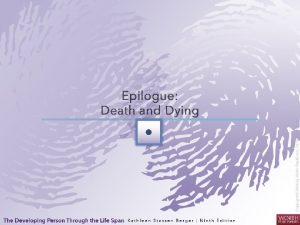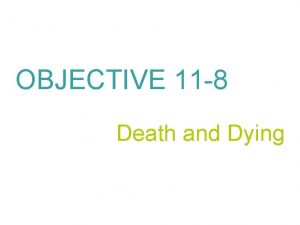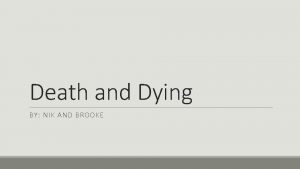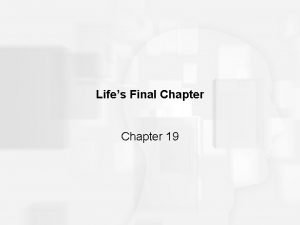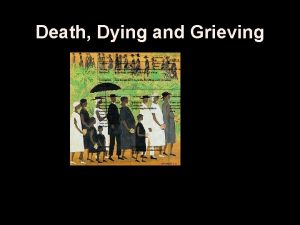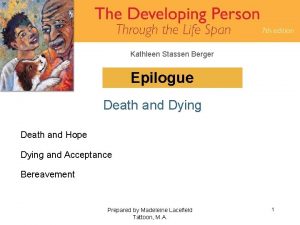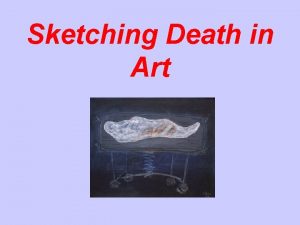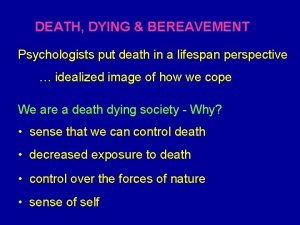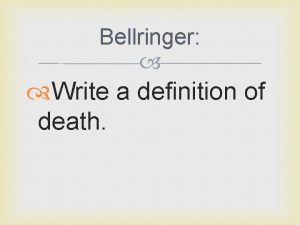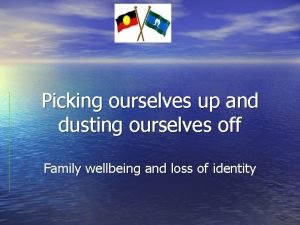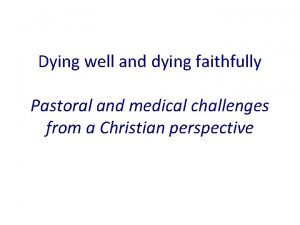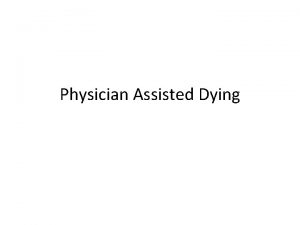Death and Dying Thoughts and Discussion Challenging Ourselves





























- Slides: 29

Death and Dying Thoughts and Discussion

Challenging Ourselves People riding amusement park rides with heart conditions. Running of the bulls in Pamplona Smoking, drinking, driving fast, etc. How do YOU tempt fate?

“Facing Death” Life is supposed to go on. We wake to a familiar world each day. Why disturb the pattern? For most of us, death anxiety comes in a moment and passes … but this has not always been the case: – EXAMPLES IN HISTORY?

Occupations & Life-Situations Which occupations or life situations make it harder to deny the reality of death? Which make it easy? In earlier times most people died before what we consider mid-life!

Life at All Costs? What is happening in society today with hospice care, etc. which changes this notion? Death, once the problem, is now considered the “answer” by a growing number of people today. Discuss

Life at All Costs? What is happening in society today with hospice care, etc. which changes this notion? Death, once the problem, is now considered the “answer” by a growing number of people today. Discuss

Fear of the Unknown Fear creates greater anxiety 2. Not facing reality will only make it worse in the long run. 3. Fear is of the unknown 4. Unknown KNOWN = eliminate anxiety 1. Lighting a light in the darkness! We do not fear the dark, but rather what might be IN the dark.

Fears associated with death: 1. Loss of life Leaving loved ones Unfinished business Giving up our possessions 2. Process of dying Losing control Indignity Pain 3. Death itself Unknown Possible punishment Possible annihilation 4. The Dead Ghosts Evil spirits

Moving On 1/28/2014

Hospice 2 Types 1. Facility 2. Home Hospice Care Purpose: To make the person comfortable in their last days.

What can dealing with death and dying teach us? 1. To make sense out of life – How would life be different without death? 2. Prepare (wills, burial plots, etc. ) REMEMBER: Preparing won’t make it happen! 3. Help us deal with “little deaths” that occur throughout life. If we can face death we can face anything. (“I’ll get through this. ”) 4. Help us to live life to the fullest!

Why North Americans can more easily deny death: 1. 2. 3. 4. 5. No war on our own soil. No public executions. Longer life-span. (makes us further removed from death). Removed from mainstream living (nursing homes, hospitals, etc. ) Society glorifies youth

Denying death: 1. The use of Euphemisms Euphemism = substitution of a mild or roundabout word or expression for another felt to be too blunt, distasteful, or painful. 2. Cryonics Movement – One of the greatest examples of the denial of death in our modern society

Attitudes, Beliefs, and Feelings Two people may hold identical beliefs and attitudes, but differ greatly in their feelings. There is a profound experiential difference between people who have had a personally significant death (experience) and those for whom death has remained a distant topic, or even just a word.

Living Will The living will has been available since 1968 People hesitate to write up a living will because it causes them to confront THEIR OWN PERSONAL DEATH. “ADVANCE HEALTH CARE DIRECTIVE” (successor to the Living Will) Part of established hospital policy How many hospital personnel sign one?

Marching On 1/29/2014

Death & The Elderly may not be as fearful of the “death” part, but more fearful of the “dying. ”

Women vs. Men in Facing Death Women may have more anxiety toward death BECAUSE they are more willing to FACE IT! Women outnumber men in seminars and workshops that deal with death and dying – and as we look around we are proving this RIGHT HERE in this class!

What is Death? What do we know for sure? 1. Some know death to be the enemy of life. Death destroys life. 2. Others see death as a portal through which we pass to another life. And many hold both views, 1 and 2, at the same time. Hindu philosophy teaches that birth, death, rebirth, and death again are linked in a recurring cycle. We are born to die and die to be reborn.

Traditional Determination of Death Common signs of death: Lack of respiration, pulse and heartbeat Failure to respond to stimuli (light, movement, pain …. ) Lower body temperature Stiffness Bloating Decomposition

The Harvard Criteria for Death 1) Unreceptive and unresponsive. 2) No movements or spontaneous respiration or spontaneous muscular movement. 3) No reflexes 4) A flat E. E. G. (no brain waves) 5) No circulation to or within the brain.

6 Interpretations of the Death State 1. 2. 3. 4. 5. Enfeebled Life – Highly diminished, “zombielike”, endless misery, etc. (commonly held view in the ancient world) Continuation – (not much different than present life) Perpetual Development – Just as the universe is evolving, we also continue to evolve after death. (each individual may be at a different point). Waiting – Suspension/Judgement/Disposition Cycling & Recycling – Moving on to “other lives”


Grief is the intense emotion that floods life when a person’s inner security system is shattered by an acute loss, usually associated with the death of someone important in their life. ” Grollman

“Grief Work” Grief Work is necessary because part of us has been invested in another – and we must retrieve that part of us that was lost. Grief Work involves: Facing Breaking Replacing You are not replacing the PERSON, just the activities and the human (earthly) interaction.

Preparing for Grief Education (Example: this course!) 2. Philosophy of Life 1. Must be broad enough to include a “philosophy of death. ” 3. Build sound community practice Wakes, funerals, etc.

Emotions Associated with Grief 1. 2. Fear – of being alone Guilt a. Neurotic Guilt - Guilt feelings out of proportion to the cause b. Existential Guilt – Sense of human inadequacy in the face of death (can lead to self-pity) 3. Anger a. Directed Outward (anger at others) b. Directed Inward (depression – angry at self) 4. 5. Emptiness Frustration & Helplessness WHO DO WE GRIEVE FOR? OURSELVES!

“Abnormal Grief” • Experiencing these mood changes and emotions (anger, fear, guilt, etc. ) after approximately one month. – Widows and widowers may take longer

Discussion Questions 1. If you knew that you were terminally ill, what would be the greatest fears you would experience (physical and emotional) and WHY? 2. Make a list of the things you would do if you knew you had a limited time to live. Give reasons for your answers. 3. Have you been to a wake? Funeral Besides the obvious, what is difficult about funerals and wakes? What is comforting about them? 4. Which fear from the list of “fears associated with death” frighten you the most? Why? 5. How well does your family deal with death?
 An attitude that is helpful in hospice work is
An attitude that is helpful in hospice work is Chapter 13 - death and dying
Chapter 13 - death and dying My thoughts are not your thoughts
My thoughts are not your thoughts Taste imagery in the scarlet ibis
Taste imagery in the scarlet ibis Simple distillation
Simple distillation System development life cycle
System development life cycle The most creative and challenging phase of sdlc is
The most creative and challenging phase of sdlc is Chronicle of a death foretold discussion questions
Chronicle of a death foretold discussion questions Questions for death of a salesman
Questions for death of a salesman What i found challenging
What i found challenging Cognitive processing therapy worksheets
Cognitive processing therapy worksheets Challenging resistance to change
Challenging resistance to change Challenging behaviour scenarios
Challenging behaviour scenarios Challenging text examples
Challenging text examples Exciting, boring, dangerous, safe, interesting, challenging
Exciting, boring, dangerous, safe, interesting, challenging Time intensity model reactive strategies
Time intensity model reactive strategies Children challenging industry
Children challenging industry Challenging sentences
Challenging sentences Dealing with challenging patients
Dealing with challenging patients What is death
What is death Perceiving ourselves and others in organizations
Perceiving ourselves and others in organizations Awareness of ourselves and our environment is:
Awareness of ourselves and our environment is: Our awareness of ourselves and our environment.
Our awareness of ourselves and our environment. Our awareness of ourselves and our environment.
Our awareness of ourselves and our environment. Our awareness of ourselves and our environment
Our awareness of ourselves and our environment It helps us understand people and society
It helps us understand people and society How we express ourselves transdisciplinary theme
How we express ourselves transdisciplinary theme How we organize ourselves grade 4
How we organize ourselves grade 4 He is brushing his teeth action verb
He is brushing his teeth action verb Hello let me introduce myself song
Hello let me introduce myself song





